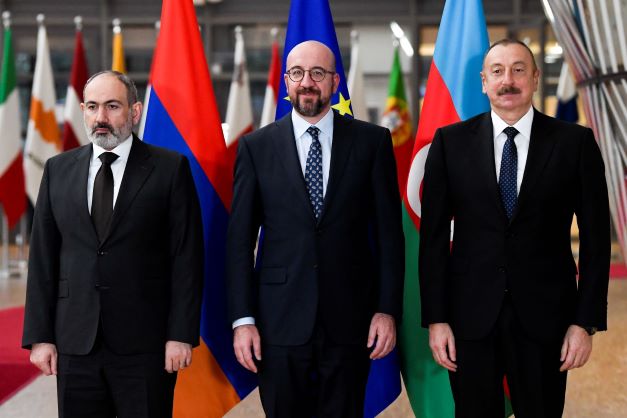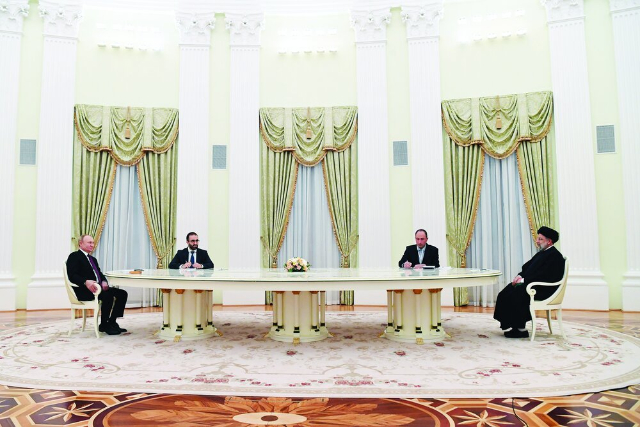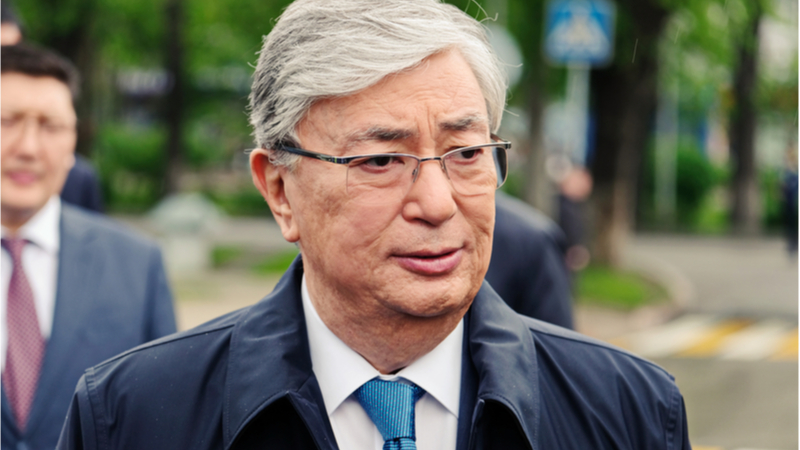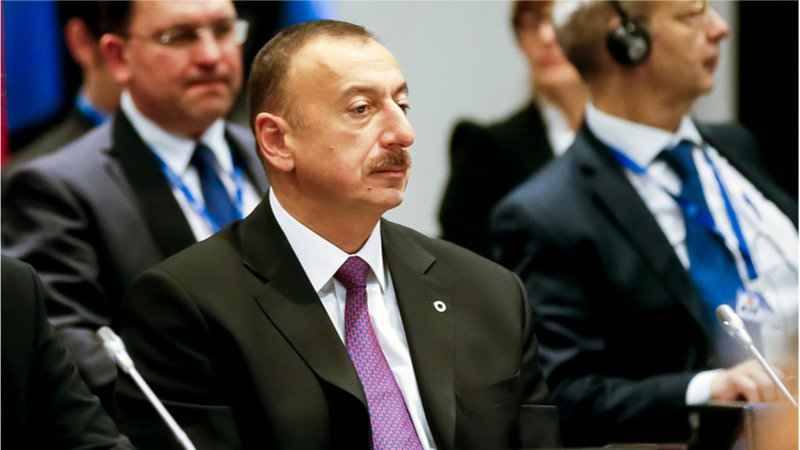Karabakh Armenians Threaten to "Join Russia" as Armenia Turns Toward Peace with Azerbaijan
By Robert M. Cutler
May 9, 2022
Constructive developments in negotiations for peace between Armenia and Azerbaijan, particularly those mediated by the European Union, have produced a further radicalization of the opponents of such a peace. Russia is unhappy with EU and Western attempts to take the initiative for the peaceful normalization of relations between Azerbaijan and Armenia. Russia is seeking to use the Karabakh Armenians to maintain its geopolitical position in the South Caucasus. Threats have been voiced, in both Moscow and Khankendi [Stepanakert], of the intention to seek an annexation to Russia of areas in Nagorno-Karabakh where Russian troops are located.

Iran and the Ukraine Crisis: Complexities and Considerations
By Vali Kaleji
April 25, 2022
Iran’s close relations with the Russian Federation, along with Tehran’s efforts to maintain relations with Ukraine, have complicated Iran’s approach to Russia’s military invasion of Ukraine. Although Iran has not recognized the independence of the so-called Donetsk and Luhansk People’s Republics, it simultaneously has not criticized the attack and abstained from voting on a UN General Assembly resolution condemning Russia’s invasion of Ukraine. While Tehran, like Russia, opposes NATO enlargement, it is concerned over possible negative implications of the war for the talks on Iran’s nuclear program.

National Interest and Regime Survival: Why Georgia is Cautious Towards the Russia-Ukraine War
By David Aprasidze and Giorgi Gvalia
April 22, 2022
Georgia experienced invasion by Russia in 2008 and is since partially occupied. It shares Euro-Atlantic aspirations with Ukraine. This context suggests that Georgia should be more straightforward and bolder in condemning the Kremlin’s aggression against Ukraine. However, Georgia has taken a cautious stance: it did not join any of the West’s sanctions against Moscow. Georgia’s appeasing posture seems conditioned not only by the security threats posed by Russia but also by Georgia’s domestic politics. The Georgian government is attempting a difficult balance between two types of threats – on the one hand to its national survival and on the other to the survival of its regime.

Kazakhstan: Evolving Challenges and Opportunties
By Richard Weitz
April 11, 2022
The resistance of Kazakhstan’s government to supporting the Kremlin’s war in Ukraine shows that, despite the brief Russian military intervention in Kazakhstan in January 2022, Kazakhstan still pursues a multi-vector foreign policy. Western governments can reinforce this stance, by which Kazakhstan strives to cooperate with all major powers while preventing the hegemony of any, through targeted support and other measures.

Azerbaijan and Russia's Invasion of Ukraine
By Natalia Konarzewska
April 6, 2022
Like several other countries, Azerbaijan seeks to retain functioning relations with both Russia and Ukraine amid Russia’s invasion. Baku provides Ukraine with humanitarian aid yet avoids actions directly opposing Moscow for fear of retaliation. Baku’s position reflects its interest in maintaining Russia’s acceptance of Azerbaijan’s multi-vector foreign policy and in gaining Moscow’s support for its objectives in Nagorno-Karabakh. Moreover, the recent surge of violence in Nagorno-Karabakh suggests that Baku is taking advantage of the opportunity arising as Western and Russian attention is directed elsewhere to improve its own position vis-à-vis the separatist region.








